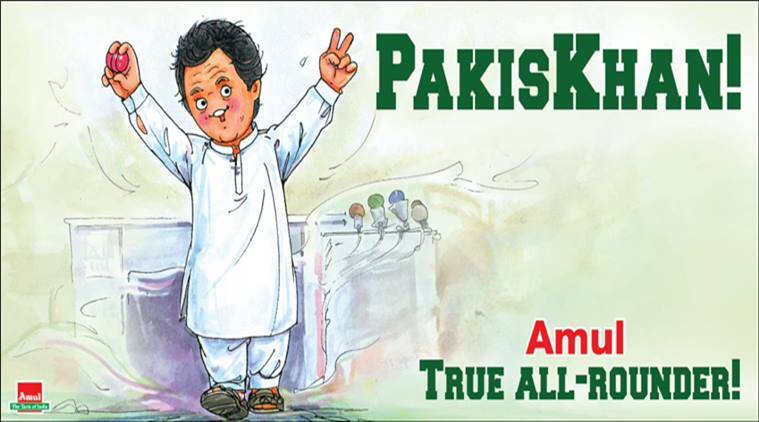Virendra Pandit
New Delhi: Contrary to claims carried this week by a section of the Indian media about Pakistan’s alleged ‘U-Turn’ on resuming sugar, yarn, and cotton imports from India, military-controlled Islamabad had never decided to resume trade activity with New Delhi in the first place.
But sections of Indian media, unaware of Pakistan’s internal power dynamics and media management tactics, lapped up unconfirmed reports with the zeal of neophytes. Once again, it did not wait for Pakistan’s official version of a major decision and became a tool of Islamabad’s propaganda. With this, Pakistan tried to bring the J&K issue to the fore again, while playing the victim cards, and score some brownie points.
The fact is, the Economic Coordination Committee (ECC) had merely received a proposal, which, inter alia, advised import of Indian sugar, yarn, and cotton. The ECC submitted it to the government which did not ratify or finally approves it. That was why, unlike overexcited Indian media, no leading Pakistani news outlet initially carried the report as they, apparently, suspected its veracity.
The ECC’s mere ‘proposal’ was acclaimed by the Indian media as Pakistan’s “decision”, which then pilloried Islamabad’s ‘U-Turn’!
Prime Minister Imran Ahmed Khan Niazi, whose ‘selected’ puppet government’s major policies are decided by the trio of Army generals, Islamist outfits, and the Chinese lobby, and who merely signs on dotted lines on the decisions sent to him, “clarified” on Friday that, after consultations with key members of his Cabinet on importing cotton and sugar from the neighboring country, he had decided that “Pakistan cannot go ahead with any trade with India under the current circumstances.’
That Pakistan has, despite becoming a basket case, not budged an inch on its stated positions vis-à-vis India was proved yet again when Khan parroted the Jammu and Kashmir issue even in a thank-you letter to his Indian counterpart Narendra Modi. The Indian PM had wished Khan a speedy recovery from his recent coronavirus infection—after he took the first dose of a Chinese vaccine—and hoped for better, terror-free, bilateral relations.
Clearly, Islamabad would never resume imports from New Delhi for a simple reason: being anti-India is the only oxygen that keeps Pakistan alive, and the very raison d’etre of its powerful and prosperous Army which has almost colonized an entire poor country.
On Friday, Khan instructed the Ministry of Commerce and his economic team to immediately take steps to facilitate the relevant sectors, value-added, apparel, and sugar, by finding alternative cheap sources of import of the needed commodities, the Dawn newspaper quoted sources as saying on Saturday.
The EEC had received various proposals for consideration from an economic and commercial point of view. After consideration, its decisions were submitted to the Cabinet for ratification and final approval. In the present case, a proposal was presented to the ECC to allow the import of cotton, cotton yarn, and sugar from India keeping in view domestic requirements, it said.
The ECC had submitted the proposal on commercial grounds for the Cabinet’s consideration, which, however, rejected them and asked officials to look for alternatives instead.
While the decision was not on the formal agenda of the Cabinet meeting, the issue was brought up by its members and the PM instructed that the matter be deferred and immediately reviewed, the report said.
Clearly, the Cabinet, headed by the PM, on Thursday rejected the proposal of the high-powered committee. Foreign Minister Shah Mahmood Qureishi, the Pakistani Army’s eyes-and-ears in the Cabinet, asserted that there can be no normalization of ties until New Delhi reverses its 2019 decision to revoke the special status of Jammu and Kashmir.
The issue of resumption of trade with India cropped up on Wednesday after the ECC, under the newly-appointed Finance Minister Hammad Azhar, submitted a proposal to the Cabinet for importing cotton, yarn, and sugar from India, thus lifting a nearly 19-month-long ban on its imports from the neighboring country amidst tensions over the J&K issue.
In May 2020, battered by the pandemic, Pakistan had to lift the ban on the import of medicines and raw materials of essential drugs from India.
After India’s move to revoke the special status of Jammu and Kashmir in 2019, Pakistan had downgraded diplomatic ties and expelled the Indian High Commissioner in Islamabad. Pakistan also snapped all air and land links with India and suspended trade and railway services.

